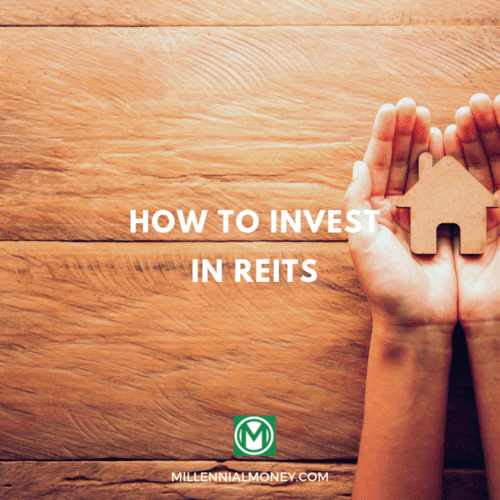There’s a ton of information out there on emergency funds and why it’s important to have one. You probably already know this, but typically it is recommended that you save between 3-6 months of your expenses in a cash emergency fund in case you need the money.
Some people like Suze Orman even recommend that you save as much as 8 months in an emergency fund. I think a lot of this is generally bad advice for most Millennials since you could be using the money to build wealth instead of keeping your money on the sidelines.
Sure something in life is always bound to happen, but there are better ways to insure yourself against emergencies than stashing a bunch of money away and missing out on the opportunity to grow that money over time.
For a different perspective check out the Millennial Money Minutes podcast we did on rethinking emergency funds:
No having your money in a savings account is not growing your money – even if you are using a high-interest Ally Bank account you are still only getting about 1% return on your money. This isn’t even enough to keep up with inflation so over time you are actually losing money. For most Millennial investors it actually makes a lot more sense to start investing the money in your emergency fund. Here’s why – because the more money you invest now the more it can grow over time due to the effects of compounding interest (your interest growing interest).
Should You Invest Your Emergency Fund?
When doing my own research on “should I invest my emergency fund” I probably read through at least the first two pages of Google and really couldn’t find a real answer to my question. In reality this is because determining whether it makes sense to invest your emergency fund really depends on your unique life circumstances. But to help you decide let me share my own experience and also highlight some of the scenarios where investing your emergency fund makes sense.
Over the past 5 years, I have been a diligent saver and my first goal (like most personal finance experts recommend) was to build an emergency fund to cover 6 months of my expenses. So that is what I did – I saved up $30,000 and put the money into a high-interest rate Ally bank account earning 1%. After 3 years my $30,000 had turned into approximately $31,000 – which is a terrible return when compared to the returns generated by the stock market during that same 3 year period. I essentially missed out.
In hindsight, if I would have put that $30,000 into anything else I likely would have made a lot more money on my money. If I had purchased Facebook stock for example my $30,000 would now be worth about $90,000. Now I am not recommending you use your emergency fund money to buy Facebook stock, or any stock for that matter – I am simply highlighting that I could have achieved much greater returns over the same time period with my emergency fund.
Even if I had put my $30,000 in a low-cost index fund like Vanguard Total Stock Market ETF and taken advantage of the growth of most of the US equities market then my money still would have grown into approximately $46,000. That is substantial growth compared to the $1,000 my emergency fund earned over that same time period. But critics would argue what if you needed that money during the past 3 years? What would you have done in an emergency if you had your money invested? Well, that’s the key question.
See this is where I made a mistake with my emergency fund that you don’t have to make. I had plenty of other ways to cover an emergency if one happened and didn’t need to have my money just sitting earning super-low returns.
How do you know if you are ready to invest your emergency fund?
Use the checklist below to help you decide and ask yourself honestly if you have most of the following (the more you have the more likely you should be investing your emergency fund):
- Stable job: One of the biggest reasons most people keep an emergency fund is because there’s the possibility they might lose their job. While anything can happen – if you feel you have a stable job or that you work in an in-demand job then you can probably invest all or at least part of your emergency fund. For example, if you work in digital marketing if you lost your job you could probably walk across the street and get a new one pretty easily. Evaluate the security of your own job and career track: How important are you to your company? How in-demand is what you do?
- Additional income opportunities: This is a big one – a lot of Millennials are hustlers and everyone can find additional income opportunities if they look hard enough. You can tap into these opportunities if you needed money for an emergency. If you get creative you can always find new ways to make money – work as an Uber driver, start a dog walking business, sell your old stuff on eBay, or becoming a freelance writer. Check out some of the popular freelance websites like Upwork or Taskrabbit to find additional income opportunities to cover your emergencies. What can you do for extra money if you need it for an emergency?
- Investments you could sell if you needed: While it is rarely a good idea to take money out of your investments, that money is still yours if you need it. One piece of advice – take money out of your non-retirement investment accounts first if you have them. For example, if you run into an emergency and own some stocks, sell any of them that have losses first before tapping into your retirement accounts. If you need money out of your retirement accounts and have money in a 401k and Roth IRA then take the money out of your Roth IRA first – because you can take out the money you have directly invested (not the gains) without a paying a penalty. To take money out of your 401k you will likely have to take a “loan” from your 401k if your employer allows. What investments could you sell if you ran into an emergency?
- Quality insurance coverage: Some “emergencies” might be covered by your insurance or even your credit card benefits. For example, if you have great car insurance you will likely be covered if you get into an accident or a tree falls on your car. If you purchased something with a premium credit card it might be covered if it gets damaged or lost. Keep track of all of your insurance coverage in one place and see what coverage you would have in an emergency. What emergencies does your insurance cover?
- High credit card limits: Yes, of course, it’s not ideal to put emergencies on a credit card, but if you have a stable job and meet the other criteria above then you will likely be able to pay off your balance each month or in the worst-case scenario you could carry a balance for a month or two if needed. Using your credit card for emergencies can actually be one of the best ways for using credit – it gives you a cushion if you need it, while your own money can stay invested earning interest and compounding over time. Of course, be careful not to get too far ahead of yourself and make sure you will have the ability to pay off your cards relatively easily in the next few months if you use them as your emergency fund.
I am sharing this so you don’t make the same mistake I did. Over the past few years, I have been investing the money that used to be my emergency fund and it has grown significantly. I actually keep very little cash on hand – usually only one or two paychecks – enough to cover a few months of my expenses in my checking account. Everything, literally everything else that I have is invested across a diverse range of investments including real estate, stocks, index funds, and even a small art collection. I want to make sure that my money has the best opportunities to make money – which is the essential key to building wealth.
What about you? How are you going to invest your emergency fund?





Read 17 comments or add your own
Read Comments